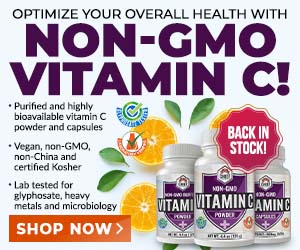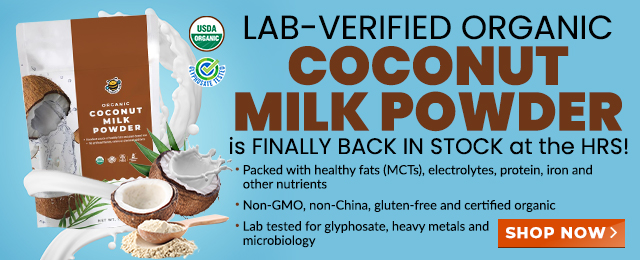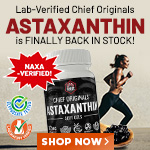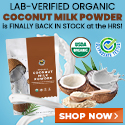Taiwan: 97% of soybeans are now GMO
Sunday, November 06, 2016 by: David Gutierrez, staff writer
Tags: GMO soy, Taiwan, food labeling
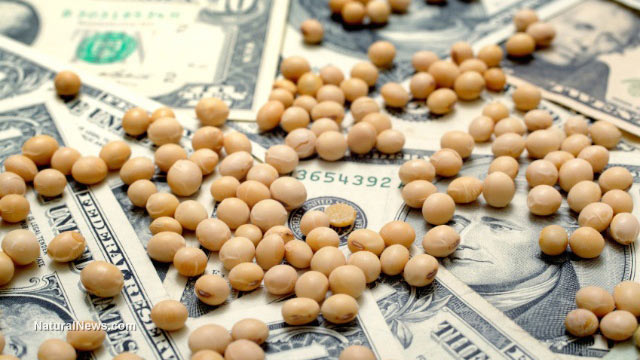
(NaturalNews) The Taiwanese Food and Drug Administration (FDA) recently announced that the country's new tracking codes have allowed it to determine for the first time that 97 percent of soybeans imported into Taiwan come from genetically modified organisms (GMOs).
In July, the Taiwanese FDA implemented new commodity codes to differentiate GMO from non-GMO soybeans. Analysis of the data collected since then revealed that nearly all imported soybeans were GMO, and that most of them were used to make cooking oil.
The new codes were in part a response to repeated requests by consumer organizations and legislators that the FDA implement better controls for tracking the importation, distribution and use of GMO foods.
To avoid GMOs, go organic
The Taiwanese numbers are not particularly surprising, as the world's top soybean-exporting countries have been avid adopters of GMO soy. They are also fairly similar to the numbers from the United States, where more than 90 percent of all soybeans and more than 85 percent of all corn grown have been genetically modified.Soybeans tend to be genetically modified for herbicide resistance, while corn tends to be modified for herbicide resistance, to produce the Bacillus thuringiensis pesticide in its tissues, or both. Herbicide-resistant crops are grown using such high quantities of these toxic chemicals that elevated herbicide residues end up in human food.
Because soy and corn are then sold to large distributors who mix together the products of different harvests for processing or resale, essentially all non-organic soy and corn products in the United States contain GMOs. The Grocery Manufacturers of America estimates that 80 percent of all processed food sold in the United States contains at least one GMO ingredient.
GMO tracking: What a concept!
Taiwan's FDA announced that it has added new codes to differentiate GMO from non-GMO corn, sweet corn, beets and canola, and now requires all of these products (including soy) to undergo mandatory inspection before being used in food.The agency uses a total of 2,485 commodity codes to track ingredients through the food stream, allowing it to ensure that products are used only for approved uses, and allowing easy recalls if problems are discovered.
This high-regulation approach to GMOs is reminiscent of the one used in the European Union (EU), where the population is highly skeptical of frankenfoods. EU law also requires tracking of all GMO products through every stage of the supply chain. This is the basis of its mandatory food labeling laws, which requires all GMO ingredients to be clearly identified on ingredient labels as "genetically modified" or "produced from genetically modified [name of the organism]." Non-packaged products such as fresh produce must also be clearly identified as GMO, such as by a label on the supermarket shelf.
The EU's skeptical approach also extends to its process for approving new GMOs. While stopping short of an outright ban, the EU forces every new GMO to be treated as a novel food that must prove its safety (as opposed to the United States, where a food automatically receives approval unless proven unsafe, and many GMOs are now exempted from testing). Unsurprisingly, far fewer GMOs have been approved in Europe.
The EU also allows member states to ban GMOs. A total of 19 European countries have banned GMO cultivation within all or part of their borders.
Both approaches stand in stark contrast to the United States, where President Obama recently signed a law known by critics as the Denying Americans the Right to Know (DARK) Act. The DARK Act bans all local GMO-labeling initiatives, such as the measure passed by the state of Vermont. Instead, it directs the Secretary of Agriculture to implement a completely voluntary labeling initiative sometime in the next three years.
This "labeling" measure will require consumers to use smartphones to scan QR codes on every single product they are looking at. It also exempts 95 percent of GMO ingredients from being labeled, including all Bt and "Roundup Ready" GMOs.
Ninety percent of the U.S. population supports mandatory GMO labeling.
Sources for this article include:
TaipeiTimes.com
EcoWatch.com
NaturalNews.com
CFR.org
EcoWatch.com
EC.Europa.eu
NaturalNews.com
GMO soy at FETCH.news
Get independent news alerts on natural cures, food lab tests, cannabis medicine, science, robotics, drones, privacy and more.
Take Action: Support Natural News by linking to this article from your website
Permalink to this article:
Embed article link: (copy HTML code below):
Reprinting this article:
Non-commercial use OK, cite NaturalNews.com with clickable link.
Follow Natural News on Facebook, Twitter, Google Plus, and Pinterest
- Warp Speed 2.0: Trump Administration ACCELERATES Gates-funded, self-amplifying bird flu vaccines
- DMSO and Natural Dyes: A suppressed cancer treatment resurfaces in independent research
- Transhuman vectors of disease: Young adults continue to produce spike proteins ONE YEAR after receiving COVID vaccine
- Chemical cocktails in processed foods linked to diabetes, validating natural health warnings
- Study finds bananas more effective than salt reduction for lowering blood pressure
- 8 U.S. states may EXPAND vaccine exemptions in 2025, and parents have many reasons to STOP THE SHOTS
- Prominent doctors call for new holistic therapies to address CANCER SPIKE: Tree barks provide anti-cancer treatment options
- STAGING BEFORE RELEASE: WHO Runs 2-Day Pandemic Simulation 'Exercise Polaris'
- Fermented foods like sauerkraut may outshine modern medicine in gut health, research finds
- Aerosolized bioweapons? Strange “diploid biomasses” falling out of the sky in Florida captured under the microscope
- Ancient mummies rewrite human history with “ghost” lineage discovery
- Surge in KIDNEY FAILURES linked to common medications
- Millions of gun owners could be challenged in court and lose their firearms if DOJ doesn’t step in to stop crazy ATF rule
- Mike Adams releases country western hit single: Goin’ Back in Time is Comin’ Home
- Analysis: The coming economic collapse, a mass uprising and Trump's three secret weapons to halt the growing revolt
- Fauci is back in the limelight, and he’s busy promoting a future COVID or FLU pandemic
- Israeli lobbyists boast of controlling US national security policy in leaked AIPAC audio
- Widespread social and economic unrest: Steve Quayle issues urgent financial warning of imminent asset collapse in new interview with Mike Adams
- Israeli lobbyists boast of controlling US national security policy in leaked AIPAC audio
- Aerosolized bioweapons? Strange “diploid biomasses” falling out of the sky in Florida captured under the microscope
- Analysis: The coming economic collapse, a mass uprising and Trump's three secret weapons to halt the growing revolt
- Fauci is back in the limelight, and he’s busy promoting a future COVID or FLU pandemic
- Widespread social and economic unrest: Steve Quayle issues urgent financial warning of imminent asset collapse in new interview with Mike Adams
- Kiss Your Genetic Privacy Good-Bye! 23andMe Gets Green Light to Sell Your Intimate Genetic Details to Anyone They Want
- Mike Adams releases country western hit single: Goin’ Back in Time is Comin’ Home
- U.S. lawmakers investigate Meta over alleged China collaboration
- Tulsi Gabbard leads charge against the Biden regime’s global censorship of the 'Disinformation Dozen'
- Pfizer's RSV vaccine linked to preterm births as drug giant CONCEALED RISKS from pregnant women in unethical clinical trials
- Dane Wigington exposes climate engineering as ‘All-Out Weather and Biological Warfare’
- Shedding light on the dark side of MMR vaccines: How vaccinated individuals SPREAD MEASLES & put the vulnerable at risk
- TAKE IT DOWN Act advances in Congress amid free speech concerns
- CLOT SHOT PLANDEMIC UNFOLDING: Fibrous, rubbery clots caused by covid injections have prion-like seeding activity
- Chemtrails unveiled: How the CIA and Big Business are manipulating the weather for profit
- Curcumin’s ancient healing power supercharges muscle recovery, and its effects are compounded with anti-inflammatory foods and supplements
- Criminal referral requests filed against Fauci and top COVID officials in seven states
- Defunding DEADLY mRNA jabs: Government funding for mRNA technology being scrutinized and sidelined until proven "safe and effective" for real
- Newly released JFK files reveal Pentagon's role in creating Lyme disease and covid in the same lab
- Analysis: The coming economic collapse, a mass uprising and Trump's three secret weapons to halt the growing revolt
- Mike Adams releases country western hit single: Goin’ Back in Time is Comin’ Home
- Aerosolized bioweapons? Strange “diploid biomasses” falling out of the sky in Florida captured under the microscope
- Kiss Your Genetic Privacy Good-Bye! 23andMe Gets Green Light to Sell Your Intimate Genetic Details to Anyone They Want
- European Court of Justice: Healthcare professionals who promoted or administered COVID-19 vaccines are CRIMINALLY LIABLE for any harm caused
- Federal employees whine over DOGE's new directive requiring them to do a 5-point summary of weekly accomplishments
- Widespread social and economic unrest: Steve Quayle issues urgent financial warning of imminent asset collapse in new interview with Mike Adams
- U.S. approves new Russian ambassador as diplomatic thaw continues
- Government waste exposed: Hegseth supports Musk’s demand for accountability from federal workers
- Now you can HEAR chemistry: Health Ranger translates molecules into music in stunning video demonstration that will blow your mind (and your ears)
- Fauci is back in the limelight, and he’s busy promoting a future COVID or FLU pandemic
- CLOT SHOT PLANDEMIC UNFOLDING: Fibrous, rubbery clots caused by covid injections have prion-like seeding activity
- I Want My Bailout Money – new song released by Mike Adams
- I Want My Bailout Money – new song and music video released by Mike Adams
- Tulsi Gabbard leads charge against the Biden regime’s global censorship of the 'Disinformation Dozen'
- Trump administration poised to overhaul crypto regulations with new SEC leadership
- The Health Ranger releases “Vaccine Zombie” song and music video, using AI-animated zombies for the music video
- Red Cross issues warning to stop blood plasma donations from vaccinated people
- Scientists confirm: GENIUS brain function can be spontaneously unleashed in humans without any apparent cause
- EPA advisor admits the agency is funneling billions to climate groups ahead of Trump’s return to White House
- HYSSOP: What research reveals about the health benefits of this ancient holy herb
- Two containers with completed ballots fall out of truck in Florida
- Newly released JFK files reveal Pentagon's role in creating Lyme disease and covid in the same lab
- Global leaders unite to clamp down on “misinformation” with UN-backed Cascais Declaration
- Mike Adams releases country western hit single: Goin’ Back in Time is Comin’ Home
- BREAKING: 2025 NDAA authorizes mandatory military draft of WOMEN across America… as Pentagon pursues global NUCLEAR war with both Russia and China at the same time
- Michael Yon warns of a ZIONIST TAKEOVER in Trump’s second administration
- The Health Ranger releases “Vaccine Zombie” song and music video, using AI-animated zombies for the music video
- Ozempic and Wegovy weight loss drugs are injectable LIZARD VENOM PEPTIDES that may unleash a devastating wave of organ failure… side effects align with symptoms of SNAKE BITES
- BOMBSHELL: DNA testing kits are a SCAM to develop ethnic-specific bioweapons
- Israeli soldiers accused of even more torture and abuse in the West Bank
- I Want My Bailout Money – new song released by Mike Adams
- These 13 countries just signed an agreement to engineer a global FAMINE by destroying food supply
- NASA admits that climate change occurs because of changes in Earth’s solar orbit, and NOT because of SUVs and fossil fuels
- RFK Jr. clears key hurdle: Sen. Susan Collins backs controversial HHS nominee, signaling a new era for health policy
Science News & Studies
Medicine News and Information
Food News & Studies
Health News & Studies
Herbs News & Information
Pollution News & Studies
Cancer News & Studies
Climate News & Studies
Survival News & Information
Gear News & Information
News covering technology, stocks, hackers, and more



"Big Tech and mainstream media are constantly trying to silence the independent voices that dare to bring you the truth about toxic food ingredients, dangerous medications and the failed, fraudulent science of the profit-driven medical establishment.
Email is one of the best ways to make sure you stay informed, without the censorship of the tech giants (Google, Apple, Facebook, Twitter, YouTube, etc.). Stay informed and you'll even likely learn information that may help save your own life."
–The Health Ranger, Mike Adams










